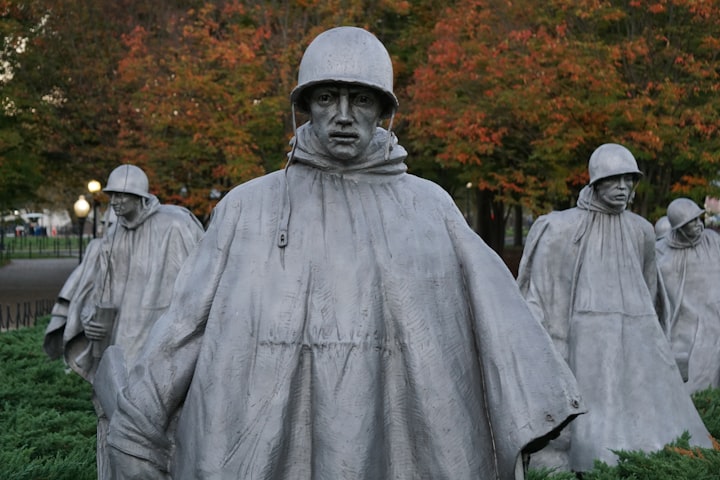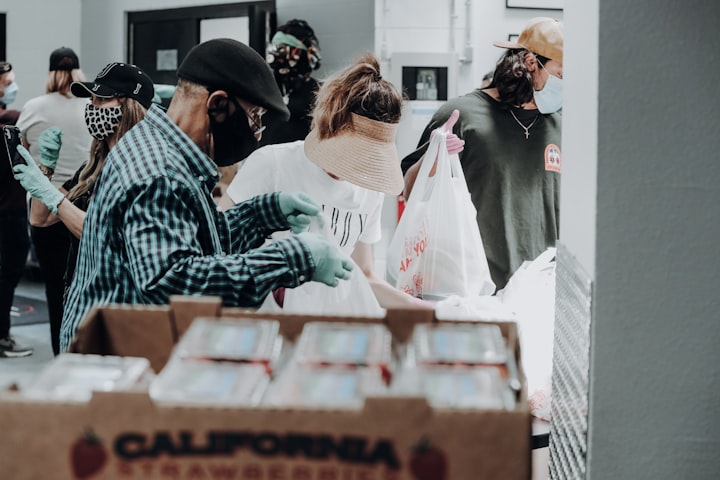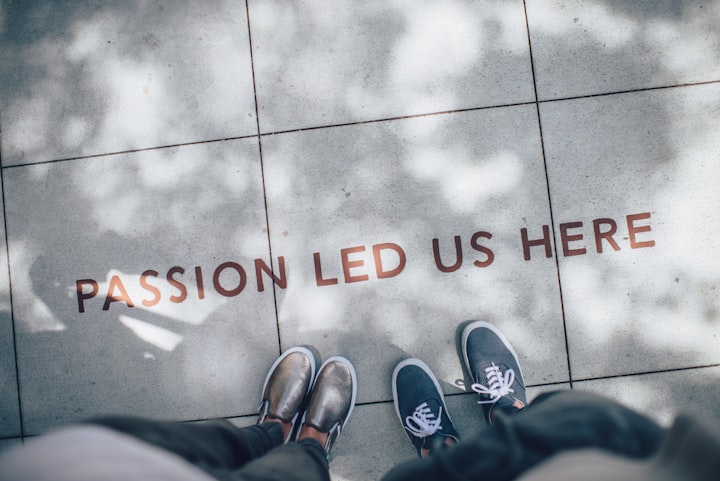What People Really Mean When They Say Thank You for Your Service
Is it a heartfelt tribute or something more complicated?

On Veterans Day and Memorial Day, you hear it a lot. Your Facebook friends post pictures of themselves and their relatives in military uniforms, and the comments frequently include the phrase, “Thank you for your service.” It’s become the “have a nice day” of the new millennium. The number of people who sincerely mean it is questionable.
But it’s not only veterans who elicit this response. Everyone who does a job we wouldn’t want to do ourselves gets the nod.
In the wake of 9/11, people added first responders to the list of those who inspired them to express gratitude. Now that it looks like COVID is in it for the long haul, we’re thanking doctors, nurses, pharmacists, truck drivers, mail carriers, DoorDash delivery people, and grocery clerks.

Parents who hadn’t so much as cracked a book, let alone a textbook since they were in school found themselves homeschooling and gained a new appreciation for teachers. But like veterans, the general public's feelings about teachers are complicated.
Many people dislike teachers because of their childhood school experiences. Others resent paying property taxes to fund the salaries and pensions of people they don’t believe work hard enough to deserve it. (Never mind that most of them do deserve it and much more.)
Intellectually, we know that we should be grateful to those who defend our country, respond to our emergencies, and educate our children but that gratitude comes with a certain amount of baggage. Researchers tell us that gratitude is good for us. Genuinely grateful people are happy people. Then there’s the rest of us. Here’s where the mixed feelings come in.
Guilt

“I had some friends, very close friends of mine…guys who came home in wheelchairs, and then, I didn’t go. I was a stone-cold draft dodger.”
— Bruce Springsteen in an interview with Tom Hanks at the Tribeca Film Festival
I grew up in a small, rural college town north of New York City during the Vietnam War era. Only one person from there died in Vietnam, but everybody who knew Henry adored him.
His death shook his big, devoutly Catholic family at its very foundation. Were they proud of his sacrifice? I don’t know. I know that Henry’s death was and continues to be devastating for the survivors.

Henry’s picture hangs in the local VFW hall where, at least in the past, non-combatant vets were persona non grata. When I was young, there was hardly a family in town whose father hadn’t served during WWII or the Korean War, and most of the grandfathers were WWI vets, most of whom saw action. So there was an aura of shame surrounding those who didn’t battle the enemy face to face or who didn’t go at all.
This shame did not descend on my generation until many years after the war. Those who protested the war and escaped the draft because of college enrollment, being female, or simply being privileged (the initials DT come to mind) considered themselves either lucky or smart.

Returning Vietnam vets didn’t get a band or a ticker-tape parade. We lost the war. Nearly 41,000 of our soldiers died in action. Thousands more either died of their wounds or were permanently disabled. Many committed suicide. Nobody felt like celebrating. We wanted to forget the whole mess ever happened. It was a national embarrassment.
But once the news media began to pay attention to the plight of Vietnam vets and sympathetic portrayals popped up on movie screens, there was a change of heart. We realized that we hadn’t done right by them, and the push to attempt to rectify that situation began to take hold.
The gratitude movement

As of 2019, according to the U.S. Census, there are 17 million veterans in the United States. The sheer numbers make tipping the hat to veterans a wise proposition for businesses.
We now see parking spaces and free and reduced goods and services for veterans, especially on Veterans Day. It’s an interesting trend, but does it mean Americans are more grateful for veterans’ service and sacrifices than they used to be? I don’t think so. Like everything else in this country, nothing much happens unless there’s money in it for someone. But, of course, we wouldn’t have so many veterans in the first place if war weren’t good for business.
Virtue signaling

Virtue signaling is a relatively new term in everyday use, but the behavior has always been with us. Anyone with children knows the tendency some kids have to point out their virtues as a means of sticking it to their naughty siblings. For example, “I only had one cookie, Mommy, but Junior had six!”
I suspect some people who thank every vet on their Facebook page on Veterans Day are engaged in a subtle form of virtue signaling. It makes them feel as good as the person thanked. But, more importantly, it costs them nothing. It doesn’t inconvenience them or raise their taxes.
In summary

Is there anything wrong with saying “thank you for your service”? Not really, but I’m sure veterans would be happier if people showed their gratitude by supporting programs that produce more tangible benefits for veterans like mental health care, food insecurity, and vocational training.
Medical workers would probably prefer you get vaccinated, so they don’t have to risk their lives to save yours. Most teachers would like your support for education in the voting booth over a thank you note. First responders would appreciate it if you avoided doing the dangerous, reckless, and disruptive stuff that makes their jobs more difficult.
Gratitude is fine, but showing it is more meaningful than saying it.
About the Creator
Denise Shelton
Denise Shelton writes on a variety of topics and in several different genres. Frequent subjects include history, politics, and opinion. She gleefully writes poetry The New Yorker wouldn't dare publish.






Comments (2)
Thank you for your comment, Kendall. I appreciate it!
I really liked this piece. You pointed out how, as James Reedy, press secretary to President Johnson once said, people tend to look on different directions when discussing war. We need more compassion & less empty words.